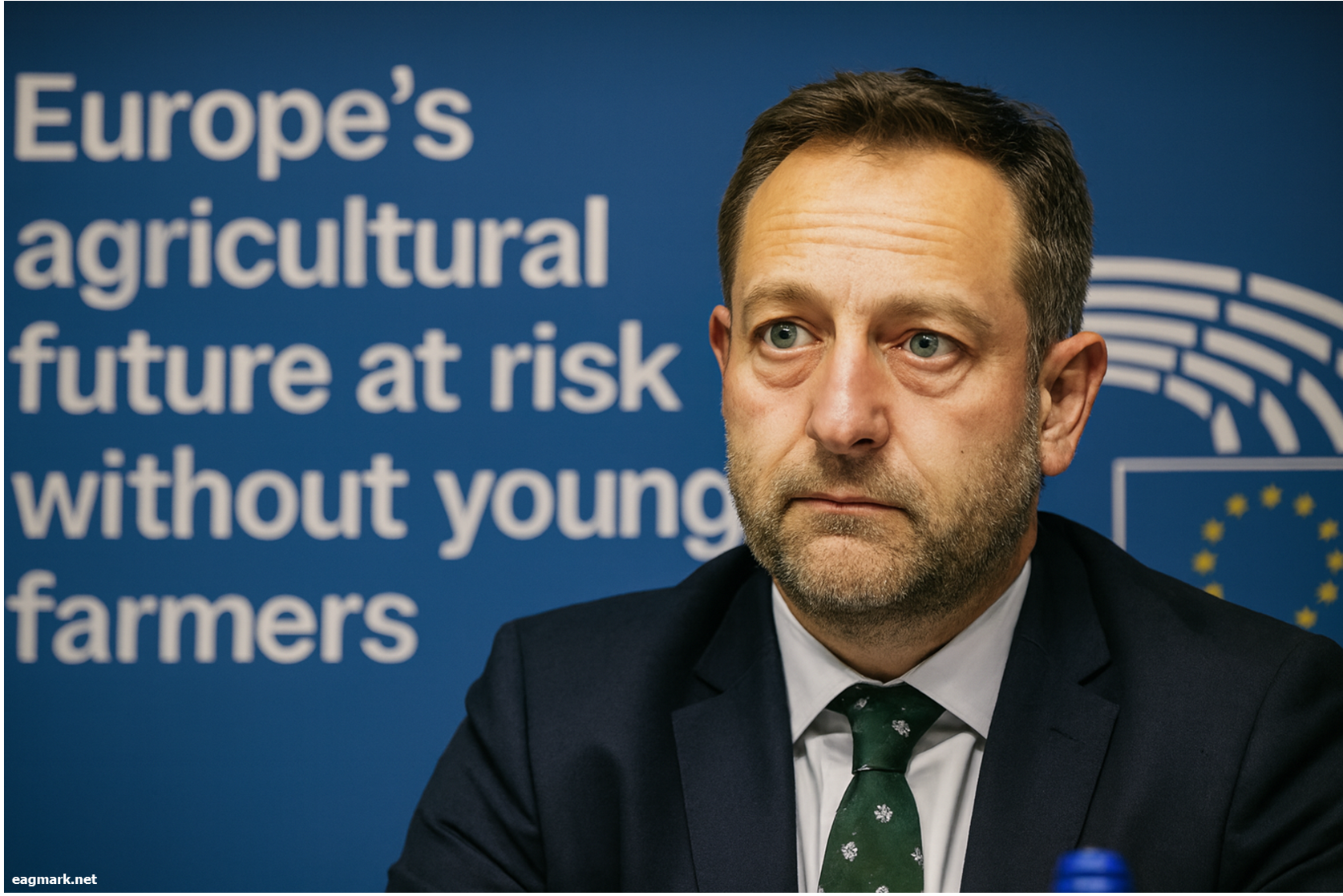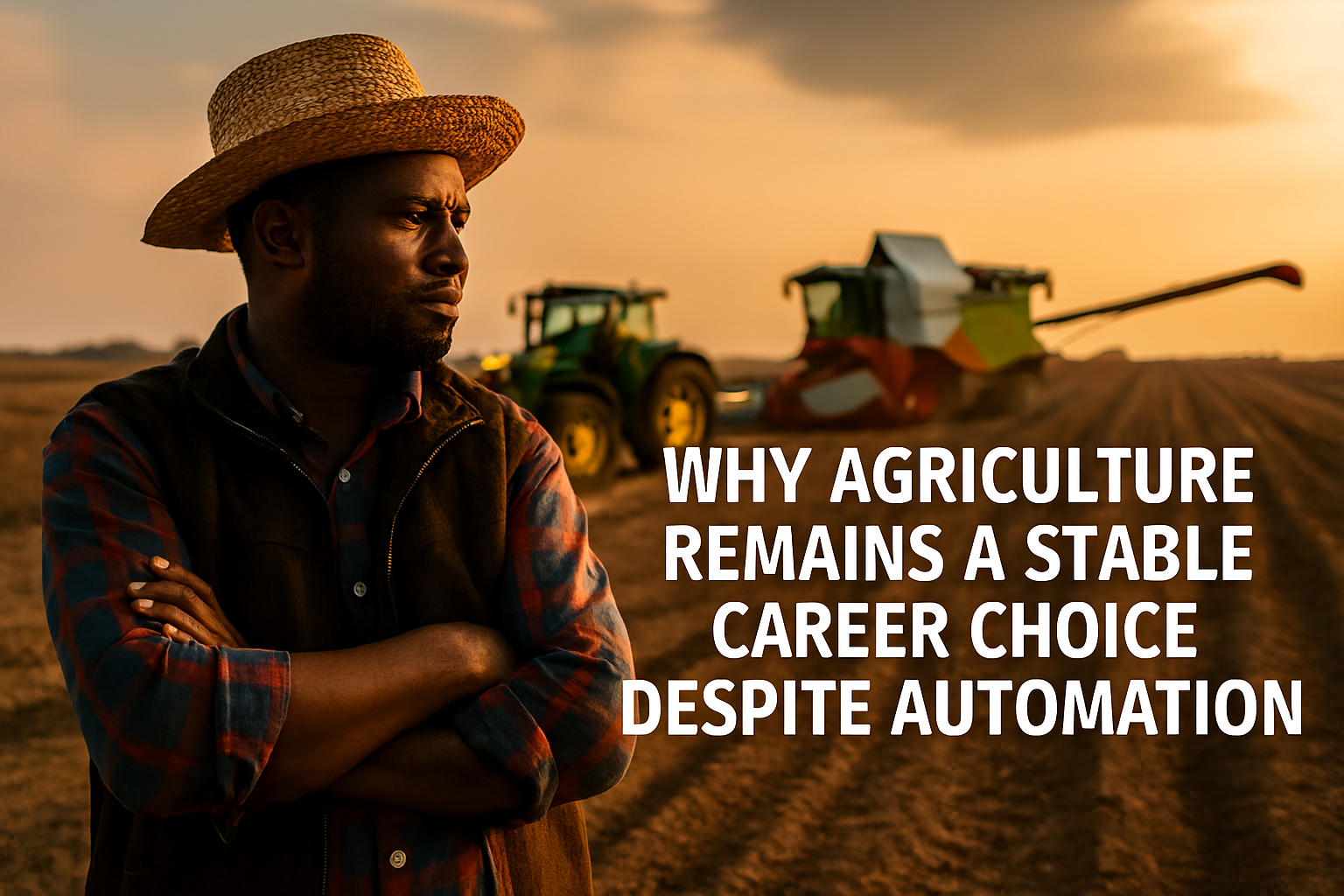
Paris — European Commissioner for Agriculture and Food Christophe Hansen issued a stark warning on Tuesday about the future of farming, telling delegates at the OECD Global Forum on Agriculture that without new entrants to the profession, the entire food system faces collapse.
Speaking at the annual policy forum in Paris on October 28, Hansen laid out the scale of the demographic challenge facing European agriculture: fewer than 12 percent of EU farmers are under 40 years old, while the average age has climbed above 57. These statistics, confirmed by European Commission data, reflect a crisis that extends far beyond Europe's borders.
"Without new farmers, there is no future for farming," Hansen told EU News Radio. "There is no sustainable food system and there is no balanced territorial development."
A Global Phenomenon
The aging of the farming population is a worldwide challenge. In the United States, census data from 2022 shows the average farmer age reached 58.1 years, with nearly 48 percent of established producers now 65 or older. Canada's situation mirrors this trend, with the 2021 Census of Agriculture revealing that 60.5 percent of farm operators are 55 or older, up from 54.5 percent just five years earlier.
The demographic shift varies by region. According to FAO research, approximately 27.5 percent of agricultural holders globally are over 55, though this figure masks significant regional variation—from 7.1 percent in sub-Saharan Africa to 44.7 percent in the Caribbean.
Barriers to Entry
Hansen pointed to structural obstacles that keep young people from entering agriculture. "Too many people see it as out of reach because they simply can't access the profession," he said, citing prohibitively high land prices and difficulties securing financing as primary barriers.
These challenges are documented across developed economies. In Australia, where the median age of farmers reached 54 in recent years, analysts have noted that the average farm capital value now exceeds AUD 3.3 million, creating substantial barriers for new entrants without family connections or significant capital.
Europe's Response Strategy
Last week, the European Commission unveiled its Strategy for Generational Renewal in Agriculture, which sets an ambitious target to double the share of young farmers to 24 percent by 2040. The comprehensive plan addresses five key areas: land access, finance, skills development, rural living standards, and succession support.
The strategy includes a "mandatory starter pack" in the next Common Agricultural Policy (CAP) running from 2028 to 2034. This package would provide young farmers with a lump sum of up to €300,000 to facilitate entry into the profession. The Commission is also urging member states to dedicate at least 6 percent of agricultural spending to generational renewal measures.
"The EU strategy provides a comprehensive framework that complements our proposal for the Common Agricultural Policy," Hansen explained. "It brings together policy orientations around agriculture, territorial development, taxation, pensions, education and land governance into one coherent approach."
Signs of Progress
Not all indicators are negative. The 2022 U.S. Census of Agriculture recorded a 7 percent increase in farmers under 44, with the largest jump among those under 25. Beginning farmers—those with 10 years or less experience—now represent 30 percent of all U.S. producers, up from 29 percent in 2017.
Australia has also seen modest improvements, with the 2021 census showing a 4.7 percent increase in agricultural employment and a rise in the proportion of young people in the workforce to 25 percent.
Economic Stakes
The economic implications extend beyond individual farms. U.S. farms with at least one beginning producer generated $122 billion in agricultural products in 2022, accounting for 23 percent of total agricultural sales. In Europe, where agriculture remains central to rural economies, the sector's future directly affects millions of livelihoods and food security for a continent of 450 million people.
Commissioner Hansen's comments at the OECD forum underscore what many agricultural economists have been documenting for years: the challenge isn't simply about replacing retiring farmers, but ensuring viable economic conditions that make farming attractive to educated, entrepreneurial young people who have other career options.
The OECD Global Forum on Agriculture, which brings together policymakers, experts, and industry representatives annually, focused this year specifically on attracting new farmers by addressing succession planning and generational renewal.
As Hansen emphasized, agriculture is "a profession and a way of life"—but one that increasingly requires coordinated policy intervention to remain accessible to the next generation. Whether Europe's ambitious targets and the broader international efforts will reverse decades-long demographic trends remains to be seen, but the stakes for global food security could hardly be higher.
